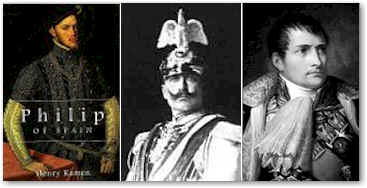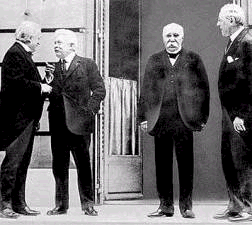The Reluctant European
![]()
Stephen Berry
In January 2002, most countries of the European Union (E.U.) moved to a common currency called the Euro, the only exceptions being Demark, Sweden and the U.K. This is only the latest move in an attempt by the European political elites to form an integrated European superstate. Members of the E.U. already share a common tariff policy and the pressure is on to harmonise taxes, regulate conditions of employment Europe-wide and construct a common defense policy. The institutions of the E.U. are undoubtedly skewed in favour of the creation of a centralised European Federal State: the European Commission is staffed by full time bureaucrats who are also part of the legislative process; the European Parliament simply reinforces the Commission’s centralising tendencies; the European Court of Justice is a powerful device for integration; and the Council of Ministers (political representatives of the 15 E.U. members) behaves as if it were a European cartel of politicians.
As a political entity, the European Federal Superstate would be quite formidable. In the year 2001 the population of the 15 members of the E.U. totalled some 380 million souls (U.S. population = 285 million) and the Gross Domestic Product amounted to $8 trillion per annum (U.S. = $10 trillion approx). In the year 2004, it is planned to add further new members to the E.U.. The shortlist of candidates is Cyprus, the Czech Republic, Estonia, Hungary, Latvia, Lithuania, Malta, Poland, Slovakia and Slovenia. This further expansion would add another 75 million people to the E.U. but, because many of the new members belonged to the old Eastern bloc, the actual increase in the E.U. economy would only be an additional five per cent. It comes as no surprise to Libertarians that the guys at the top are looking for a chance to create a new political Leviathan and wield the big stick. But how do people as a whole in the U.K. regard the prospect of becoming part of a new European superstate and can the European political elites overcome the considerable opposition on the ground and actually bring their grand project to fruition?
The decisive event in British history took place a mere 40,000 years ago when a narrow strip of water (later referred to by English speakers as the ‘English Channel’) was formed. It has divided the European mainland from the islands off its north west corner and ensured that in many respects Britain would develop differently from Continental Europe. A further result of this division has been the “To what extent is Britain part of Europe” debate. This debate has been acrimonious, entertaining, of at least 1,500 years in duration and still shows no signs of abating.
Although England was occupied by the Romans for 400 years, little permanent impression was left. Roman law became the norm in Continental Europe but successive invasions by Angles, Saxons, Danes and Vikings meant that it was the Anglo-Saxon legal system which took root in the U.K. After the 1066 Norman Conquest there has been no further successful invasion from Continental Europe for almost one thousand years, but the descendants of the Norman Kings did pursue endless damaging quarrels in Europe. For instance, the disastrous Hundred Years War between the royal houses of Plantagenet and Valois was a dynastic squabble over who could claim legitimate rights to this or that piece of land in what is now known as France.
In the middle of the 16th century, contemporaneous with the first European settlements in North America, the split with Rome and the fall of Calais (the last English possession on the Continent of Europe) to the French, a policy of keeping Europe at arms length was inaugurated. It would be wrong to call this policy totally non-interventionist with respect to mainland Europe, but it was considerably less interventionist than what went before or came after. Alliances were made with European powers, but British intervention was of an ad hoc nature and even in wartime typically consisted of a small expeditionary force or paying other powers to do the fighting. It was essentially a reactive policy aimed at preventing one power, whether it was the Spain of Philip II, the France of Napoleon or the Germany of the Kaiser, from dominating mainland Europe. Above all, with one exception, Britain made no European territorial acquisitions– and therefore no European territorial commitments – as a result of these wars. This policy lasted for almost 400 years and can be seen to have paralleled the rise and fall of the British Empire.

Perhaps it was the result of anxiety about an over-extended empire, perhaps it was the decline of Classical Liberalism in the U.K., but whatever the reason, this policy changed in the first decade of the 20th century. British governments made permanent alliances in peacetime with two European powers (France and Russia) and full scale intervention in World War One was the result. One million dead, massive debts and a commitment to maintain the European order created by the Peace of Versailles in 1919 was a further consequence. The interventionist trend was taken to its limit when Neville Chamberlain offered guarantees to Poland and Romania in March 1939, countries which the U.K. was in any case unable to defend. Hitler’s invasion of Poland prompted the declaration of war on Germany in September 1939 and the most disastrous conflict in British history.

The big four at the Peace of Versailles
In the second half of the 20th century the decline in British power has not generated a more modest foreign policy – rather the opposite. The U.K. has pursued a twin-track foreign policy during this period. I have the general impression that, first and foremost, British politicians want to be part of U.S.-sponsored interventions in dim, distant lands and that getting on with European integration normally takes second place. Occasionally however, the policy changes. European integration takes first spot and intervention in obscure areas of the globe momentarily comes second. Anyone who suggested a third option for the U.K. of minding its own business would be regarded as having outraged the canons of Foreign Office decorum, someone hopelessly out of touch with the real world.
But, if the views of the political elite have changed towards Europe, the views of the man in the street remain obdurately the same. Hundreds of years of history are not to be shaken off so easily and the typical British citizen feels a closer affinity to the English speaking nations of North America and Australasia than those pesky, unintelligible foreigners on the other side of the water. In 1975, the European Union was sold to the population as the ‘European Economic Community’, an opportunity for increased trade, and was popular as such. As the integrationist project gathered pace, so has the unpopularity of the E.U. increased with the U.K. population. Indeed, this feeling is not confined to the U.K.. Whenever people have chance to vote on further integrationist measures, whether the vote is in the U.K., Ireland or Denmark, the people give them the thumbs down. There has to be a referendum when the U.K. government finally proposes membership of the Euro but the opinion polls remain firmly set against. How Blair must envy the German government which was able to exchange the Deutschmark (the most successful currency of the last 50 years) for the Euro without having to obtain the consent of the German people – which it knew would not be forthcoming.

Goodbye to the Deutschmark
After World War II the U.S. encouraged the political and economic integration of Western Europe as a bulwark against the Soviet system. Now the Soviet system has collapsed, the possible growth of a competitor in Europe will not be regarded so benignly by the ruling circles in Washington. It’s bad enough that those Europeans feel powerful enough to indulge in a tit-for-tat trade war with the Bush administration. But it was unconscionable that a German Chancellor should have the barefaced cheek recently to condemn the proposed invasion of Iraq as a ‘military adventure’ which the Germans would take no part in – and he duly had his knuckles rapped. I might add that the French President Chirac would also have condemned the Bush Iraq policy if he were not so cynical and corrupt and intent on ensuring that French companies got their share of any pickings which might be going after an invasion. If the European Union becomes stronger and if the U.S. government does embark on a policy of bringing democracy to the Middle East at the point of a gun, I would expect the tensions between U.S. and the E.U. to grow as their interests increasingly diverge. Quite which way the U.K. would jump in those fraught and unfortunate circumstances is anybody’s guess.

A German Chancellor in top form
But it’s questionable if matters will come to such a pass. Milton Friedman and a few other significant economists think that the Euro will fail within ten years. At the moment the German economy is struggling and lower interest rates would be the standard recipe. But the control of interest rates has now passed to the European Central Bank. Although this institution may have its offices in Frankfurt, it has to set the interest rate for eleven countries other than Germany and many of these do not want lower interest rates. Hard cheese for the Germans. But if one of the major European economies were in dire straits and decided to leave the Euro in order to be able to set its own interest rate , the grand European project would take a major hit from which it would be difficult to recover. As a Libertarian who does not much care for states – let alone superstates – I would crack open a bottle of my very best French champagne to celebrate. And I would wager my entire collection of Schubert songs that I would by no means be the only person in the U.K. celebrating in this fashion.
![]()
 Top 50 books of all time : by Old Hickory:-
Top 50 books of all time : by Old Hickory:-
"I have limited the selection to the books I have read. I keep to the norm of not recommending to others books I have yet to read. Clearly, books I have not read by now suggests a judgement of some sort."
PDF version
of this page
![]()
tre.pdf
Download
Requires Adobe Acrobat
Reader. This is available
for free at www.adobe.com
and on many free CDs.
 Better Off Out? Brian Hindley, Martin Howe Paperback 129 pages (14 September, 2001) Publisher: Institute of Economic Affairs (IEA); ISBN: 0255365020
Better Off Out? Brian Hindley, Martin Howe Paperback 129 pages (14 September, 2001) Publisher: Institute of Economic Affairs (IEA); ISBN: 0255365020
www.amazon.co.uk
![]()
The institutions of the E.U. are
undoubtedly skewed in favour of
the creation of a centralised
European Federal State: the
European Commission is staffed
by full time bureaucrats who are
also part of the legislative
process; the European
Parliament simply reinforces the
Commission’s centralising
tendencies; the European Court
of Justice is a powerful device
for integration; and the Council
of Ministers (political
representatives of the 15 E.U.
members) behaves as if it were a
European cartel of politicians.
![]()
![]()
The decisive event in British
history took place a mere
40,000 years ago when a
narrow strip of water (later
referred to by English speakers
as the ‘English Channel’) was
formed. It has divided the
European mainland from the
islands off its north west corner
and ensured that in many
respects Britain would develop
differently from Continental
Europe.
![]()
![]()
Perhaps it was the result of
anxiety about an over-extended
empire, perhaps it was the
decline of Classical Liberalism
in the U.K., but whatever the
reason, this policy changed in
the first decade of the 20th
century. British governments
made permanent alliances in
peacetime with two European
powers (France and Russia)
and full scale intervention in
World War One was the result.
One million dead, massive debts
and a commitment to maintain
the European order created by
the Peace of Versailles in 1919
was a further consequence.
![]()
![]()
The The U.K. has pursued a
twin-track foreign policy during
this period. I have the general
impression that, first and
foremost, British politicians
want to be part of
U.S.-sponsored interventions in
dim, distant lands and that
getting on with European
integration normally takes
second place. Occasionally
however, the policy changes.
European integration takes first
spot and intervention in obscure
areas of the globe momentarily
comes second.
![]()
![]()
How Blair must envy the
German government which was
able to exchange the
Deutschmark (the most
successful currency of the last
50 years) for the Euro without
having to obtain the consent of
the German people – which it
knew would not be forthcoming.
![]()
![]()
It’s bad enough that those
Europeans feel powerful enough
to indulge in a tit-for-tat trade
war with the Bush
administration. But it was
unconscionable that a German
Chancellor should have the
barefaced cheek recently to
condemn the proposed invasion
of Iraq as a ‘military
adventure’ which the Germans
would take no part in – and he
duly had his knuckles rapped. I
might add that the French
President Chirac would also
have condemned the Bush Iraq
policy if he were not so cynical
and corrupt and intent on
ensuring that French companies
got their share of any pickings
which might be going after an
invasion.
![]()